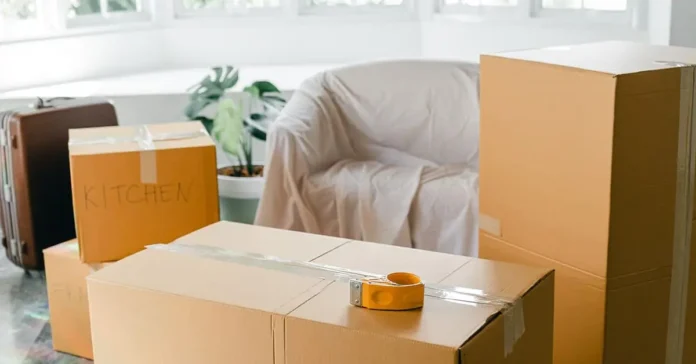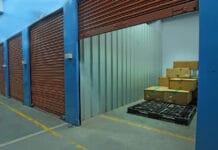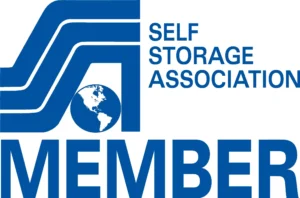Understanding storage unit costs is important for anyone looking for self-storage solutions, whether it’s during a renovation or a temporary relocation. These costs can significantly impact your budgeting decisions and influence the quality of service. With the help of these storage unit costs, one can get the details on different factors for example unit size, location, amenities, and more. With this knowledge, you can make informed decisions based on needs and budget.
For those starting their decluttering journey, knowing storage unit costs helps in planning and allocating resources efficiently. Similarly, if you’re renovating your home or office space and need temporary storage for furniture or equipment, understanding these costs allows for better financial management and smoother project execution.
Storage Unit Costs – Factors to Consider
Understanding the factors that influence self-storage costs is important, for that you can use a reliable storage calculator as well. One of the primary factors affecting storage unit cost is the size of the unit itself. Larger units typically demand higher prices due to their increased storage capacity. Additionally, the location of the efficient storage facility plays a significant role, with regional variations impacting storage unit costs. Areas with high demand or limited availability may have higher prices compared to less competitive regions.
Moreover, amenities and features offered by storage facilities can also influence storage unit costs. Facilities with climate control, advanced security measures, and convenient accessibility may have higher rates. Conversely, basic storage units without these amenities may offer more affordable options for budget-conscious individuals.
Types of Storage Units
There are various types to choose from, catering to different needs and preferences.
- Indoor storage units – This is perfect for keeping your belongings sheltered from the elements. These units are typically more affordable than outdoor options and are ideal for items that don’t require climate control.
- Outdoor storage units – This offers convenient drive-up access, making loading and unloading a breeze. While they may cost a bit more than indoor units, their accessibility can be a game-changer, especially for bulky items or frequent visits.
- Climate-control storage units – For sensitive items like electronics, artwork, or documents, climate-controlled storage units are the way to go. They maintain a consistent temperature and humidity level, protecting your valuables from potential damage.
When it comes to cost, self storage costs can vary widely depending on the type of unit and additional features. Factors such as size, location, amenities like security, and lease terms all play a role in determining storage unit cost.
What is a Storage Calculator?
Essentially, a storage calculator is a tool designed to estimate the amount of storage space you’ll need. It works by letting you input a list of items you plan to store. In return, it provides an estimated volume of storage space you’ll require. By providing a clear and realistic idea of how much space you need, you avoid overpaying for extra space that you won’t use.
Understanding the Basics of a Storage Calculator
A storage calculator typically operates by using standard measurements for common items. Whether you’re storing large furniture, books, or household appliances, it factors in the average dimensions of these items. You might be surprised to find out that what you thought would need a 10×10 unit could actually fit into a smaller and less expensive unit. The key is to carefully consider each item you plan to store and to utilize the storage calculator accurately.
To make informed decisions and optimize your storage budget, it is essential to grasp the fundamentals of a storage calculator, as outlined in the storage calculator guide.
Practical Steps to Use a Storage Calculator
Firstly, make a comprehensive list of all items you plan to store. This should include the type of item, its dimensions (if non-standard), and quantity. Next, input this information into the storage calculator. Remember, the more accurate you are with your details, the more accurate your estimate will be.
Upon completing this process, you’ll receive an estimate of the space you’ll need. Take note, this is only an estimate. It’s crucial to bear in mind that how you pack your items will also affect the total space required. Nevertheless, it gives you a solid starting point to avoid unnecessary costs.
Packing Tips for Efficient Use of Storage Space
Having an estimate is just the first step. Next, you need to pack your items efficiently to make the most of the calculated space. Here are some quick tips:
– Disassemble large furniture whenever possible. This not only saves space but also helps protect the pieces from damage.
– Utilize the inside of items. For example, drawers and appliances can store smaller items.
– Place heavier items at the bottom and lighter ones on top to prevent damage.
– Fill up boxes completely to avoid wasted space but ensure they are not too heavy to move.
By applying these tips, you will likely find you can use your storage space even more efficiently than what was suggested by the storage calculator.
Tips for Saving on Storage Unit Costs
Here are some important strategies and important tips to help you save without sacrificing quality or convenience –
- Firstly, when comparing storage unit cost options, don’t just focus on the initial price. Consider the size of the unit and whether it matches your needs. Downsizing to a smaller unit or choosing for off-peak storage times can significantly reduce your monthly expenses.
- Negotiation is key in securing a better deal. Don’t hesitate to ask for discounts, especially if you’re renting long-term or during slow seasons.
- Understand the budget for the additional fees and common charges like administrative fees, and insurance as well.
Final Words for Storage Unit Cost
Mastering the art of saving on storage unit costs requires strategic planning, negotiation skills, and financial awareness. By implementing the tips and strategies outlined in this guide, you can effectively minimize expenses without compromising on the quality or security of your storage solutions. Make sure to assess the storage needs and choices about the unit size hat fits the requirements.
Negotiate for discounts, take advantage of promotions, and be proactive in understanding and budgeting for additional fees. Collaboration and resource-sharing, such as sharing a unit with others, can further reduce costs while promoting sustainability. By staying informed, proactive, and resourceful, you can navigate the world of self storage costs with confidence, ensuring that your belongings are safely stored while keeping your budget in check.
FAQs
A1: Storage unit costs are influenced by factors like location, unit size, and amenities offered.
A2: You can save money by decluttering before storing, choosing a smaller unit, and comparing prices from different facilities.
A3: Yes, additional fees may include insurance, late payment fees, and security deposit.
A4: In some cases, you can negotiate prices, especially if you’re renting long-term or during off-peak seasons.
A5: Storage units come in various types such as climate-controlled, outdoor, indoor, and drive-up units.
A6: Consider the items you’ll store and use online calculators or ask the facility for guidance.
A7: While not mandatory, insurance provides coverage for potential damages or losses, offering peace of mind.
A8: Most facilities offer 24/7 access or have specific operating hours for access.
A9: Common security measures include surveillance cameras, gated access, and on-site staff.
A10: Create a budget that includes monthly rental fees, insurance costs, and potential additional fees, ensuring you plan for all expenses.







